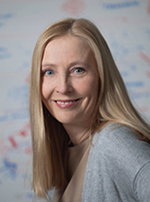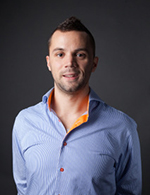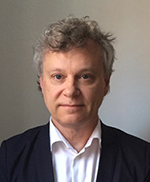Press release -
The role of the natural environment
”We have to build urban landscapes for 2.7 milliard people on our planet, but the designs of these will also affect the attitudes of the future inhabitants of the cities”, says Stephan Barthel, researcher at the University of Gävle and Stockholm Resilience Centre.
The role of the natural environment
Density is the most critical issue within urban design when solving energy problems and accessibility.
Simultaneously, insight into the role of nature is increasing, its ability to generate well-being, health and learning for people in cities, not least for children.
“Children that have spent more time in nature are better equipped to feel empathy for living beings and develop a greater connection to nature,” says Stephan Barthel.
A stimulating seminar
“Welcome to a very inspiring seminar about how we create the sustainable city. The speakers are researchers that are not only at the forefront of research, but are also charismatic. Ten top researchers, both international and Swedish.”
“We shall exchange ideas and speculations, not just those encompassing the latest research, but also utopian ideals and reflections.
Date:8th -9th November
Place: Krusenstjerna Hall, University of Gävle
See the complete programme(pdf, 1.7 MB)
There are still places left, register here
Below a few of the participating researchers:

Professor Marketta Kyttä from Aalto universitet in Finland researches on how we can build attractive cities based on how the inhabitants experience attractiveness.
In her research on how children experience and use the urban environment Professor Kyttä is world-renowned.

Matteo Giusti from the Stockholm Resilience Centre builds upon her work.
He studies how the daily routines of preschool children, those in green areas contra those in built up areas; affect their knowledge and empathy for plants, animals and the environment. He believes that the children of today are the policymakers of tomorrow.

Professor Lars Marcus from Chalmers researches on the social ecological city.
Lars analyses how the spatial form of the city creates distance and accessibility between people, between urban functions and between people and nature. He is world- renowned in the field of how one builds socio-economic sustainability in cities.
New research at the University
Stephan Barthel, a new researcher at the University of Gävle and at the Stockholm Resilience Centre, will establish research on sustainable urban development at the University of Gävle and has ongoing collaboration with all the speakers at the seminar.
A golden opportunity
We are about to enter a new "Million Programme" where Sweden plans to build approximately seven hundred thousand homes. Stephan suggests that we have a golden opportunity to reflect and deliberate.
He wants therefore to collaborate with architects, with those who have specialised in how people experience the social and physical environment, with ecologists, psychologists and sociologists,
“Research also shows that our deepest underlying attitudes, that change quite slowly when we are adults, are created when we are children.”
“The city "edits" our experiences; therefore we need a range of skills when we are designing future urban environments for learning, for well-being and for buoyant economic activities in urban environments, so that on human behaviour, on every level, cooperates with the life giving Biosphere,” says Stephan Barthel.
For further information, please contact:
Stephan Barthel, researcher in sustainable urban planning at the University of Gävle and at Stockholm Resilience Centre
Tel: 076 360 57 05
Email: stephan.barthel@hig.se
Text: Douglas Öhrbom
Photo: Ove Wall
Topics
- Humanities
Categories
- the life giving biosphere
- research on sustainable urban development
- professor lars marcus
- matteo giusti
- professor marketta kyttä
- stockholm resilience centre
- stephan barthel
- urban landscapes
- university of gävle
Education and Research at a Scenic Campus.
The University of Gävle has approximately 14 500 students, more than 50 study programmes and second-cycle programmes, about 1 000 courses in humanities, social and natural sciences and technology.
Research Profiles
Built Environment and Health-promoting Working Life are the general research profiles of the higher education institution. Important parts included are Spatial Planning with a specialisation in Sustainable Built Environment and Musculoskeletal Disorders with the purpose to prevent work-related injuries. In 2010, the higher education institution received permission to carry out third-cycle programmes in the profile area of Built Environment.
The higher education institution has applied for permission to carry out third-cycle programmes in technology, humanities and social sciences.
